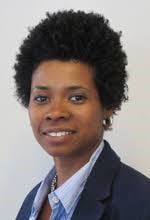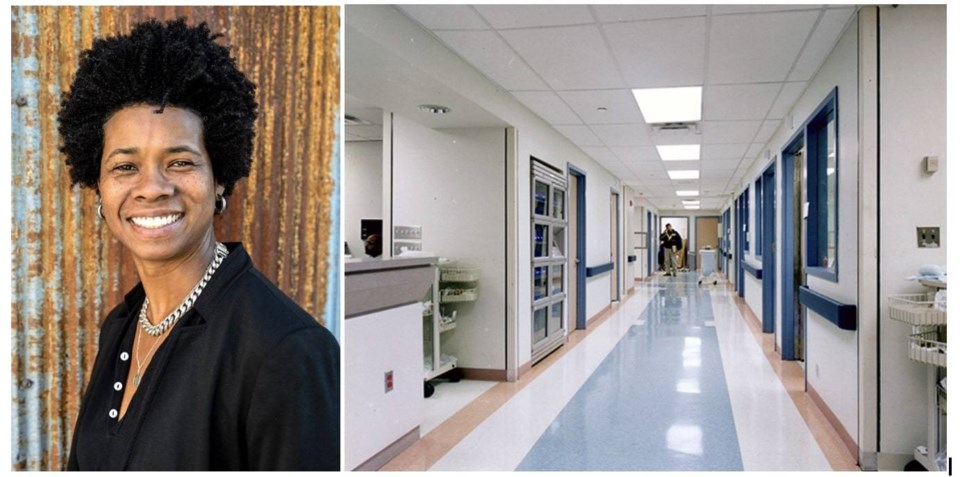When news of the coronavirus outbreak reached the hospital back in January, Dr. Sandra Scott, chair of the Department of Emergency Medicine at Brookdale University Hospital Medical Center, said her department began preparing early for what it knew was inevitable: the virus would eventually makes its way to America.
Still, Dr. Scott admits, there's only so much preparation you can do for something you're experiencing for the first time. The novel coronavirus is now here in New York City. And already, in the past two weeks, it has transformed the hospital's entire operations.
But in an epicenter like New York--Brooklyn, to be exact-- if there's one thing the emergency staff is trained for, it is to be nimble, responsive to change and most importantly, dogged about saving lives.
In this interview, Dr. Scott shares with BK Reader an up-close-and-personal perspective on what's happening inside of the ER, in this time of the coronavirus: the mood, the surprises, the disappointments. Most importantly, can the residents of Brooklyn expect to see a turnaround any time soon?
BK Reader: What's the general mood and sentiment of the healthcare staff right now around the coronavirus outbreak? How are you managing?
Dr. Sandra Scott: Everyone who is working in the emergency department, from the nurses, the PCP's, housekeeping, security, the doctors, everyone is being extremely courageous.

They are supporting each other. The general mood is that we're going to get through this.
We're probably several weeks in, and I made a lot of effort in the beginning to prepare the staff for what was coming based on the predictions, and I think that went a long way, because no one was really prepared for what we're dealing with now, because it's really unimaginable. But at least they were prepared that it was a serious situation we were going to deal with. Emergency staff in general, we have a disaster preparedness mindset. So it's helping the ED Staff to be able to swallow this very difficult pill a little bit better than some of the other departments.
BKR: I read that the state is suspending elective surgeries and other non-emergency procedures. Are there other medical practices you've had to put on hold, and how is the hospital managing the other ongoing issues while still dealing with the virus?
DSS: We have eliminated most visitation inside of the hospital to reduce the traffic of unnecessary visitors, except for under specific circumstances, like if someone is at end of life of course we allow the families to visit. And of course children can have caretakers.
But in general, visitation is suspended; the changing over of ambulatory visits to telehealth for now. But there are a lot of things we've needed to change, and these actions are happening across multiple hospitals. That includes changing over ambulatory visits to telehealth. And also, the way our cafeteria works now is different. We obviously can't eat together anymore because of social distancing. The way we are managing the distribution of food is different.
This pandemic has affected every aspect of people's personal lives and work lives. Everything is different. It's pretty intense.
BKR: Are you finding that doctors are catching the virus?
"The general mood is that we're going to get through this," said Dr. Sandra Scott
DSS: Yes, of course. Amongst my emergency physicians and nurses, I haven't had anyone tested that was positive. But we do have provider staff that have tested positive. There is a risk, and the risk can either be very low or very high, depending on the patient situation.
In our institution pretty much all of the patients admitted through the hospital [for coronavirus] come through the emergency department, and somewhere around 80 percent of the patients that we test are actually positive. So there's a significant risk amongst the emergency department staff, because they're coming in contact with patients who are positive. But that's not unique to our hospital, that's true to any hospital. Even doing your best to protect yourself, there's still some risk to contracting the virus.
BKR: Are most of the sick patients recovering from the virus?
DSS: Oh yes, Most patients are recovering. From the data that's being published, the mortality rate is lower than what we anticipated. But keep in mind that the patients that are in the hospital are the sickest of the population that has the virus. Those that are doing well are at home.
BKR: From what you are seeing inside of the emergency department, what do you want to share with the general public right now that could make us more safe and make your job easier, in this time of coronavirus?
DSS: I think what the general public needs to understand is that every single person has a responsibility to support the recovery of our city from this pandemic. Abiding by the recommendations like washing your hands and social distancing. I do think going outside is very important. The connection with other people is important, but go outside and be mindful of keeping some distance between yourself and others.
Everybody can play a role in making the lives of their neighbors and their family better. And we need to collectively take care of our elderly, just support them. I don't mean go visit them, but you can call them and find out if there's any way you can support them; run to the grocery store, leave the food or supplies at the front door for them.
It's an interesting time where we have to do the right thing and support each other in order for us to recover from this as soon as possible.




